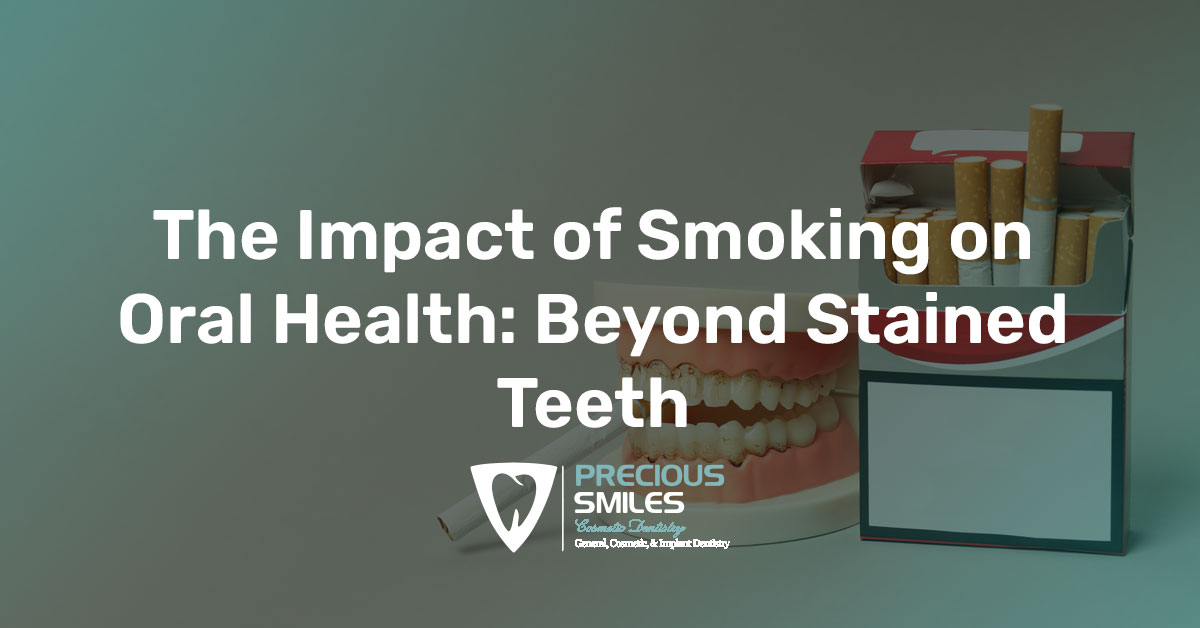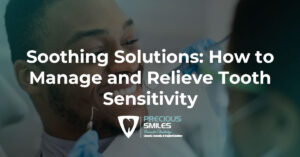Smoking not only leaves an unmistakable mark on your teeth but also wreaks havoc on your overall oral health. In this blog, we’ll delve into the multifaceted consequences of smoking on your mouth and provide practical advice for maintaining oral health, even for those who smoke.
Beyond Stained Teeth: The Hidden Dangers
Gum Disease (Periodontitis):
Smoking is a major contributor to gum disease. It weakens the immune system, making it harder for the body to fight off infections. This leaves smokers more susceptible to gum infections, leading to inflammation, bleeding, and, in severe cases, tooth loss.
Tip: Regular dental check-ups become crucial for smokers. Professional cleanings and early detection can mitigate the impact of gum disease.
Oral Cancer Risk:
Tobacco use is a primary risk factor for oral cancer. The chemicals in tobacco can lead to mutations in oral cells, increasing the likelihood of cancer development. Lips, tongue, cheeks, and throat are particularly vulnerable.
Tip: Regular screenings for oral cancer are essential for smokers. Any persistent changes, such as sores, lumps, or discolorations, should be promptly addressed.

Tooth Decay and Loss:
Smoking contributes to a buildup of plaque and tartar on teeth, leading to decay. Additionally, the compromised immune response makes it harder for the body to heal and repair damaged teeth, increasing the risk of tooth loss.
Tip: Maintaining meticulous oral hygiene practices, including regular brushing and flossing, is crucial. Consider fluoride treatments to strengthen tooth enamel.
Bad Breath and Altered Taste:
Smoking contributes to chronic bad breath (halitosis) and can dull your sense of taste and smell over time.
Tip: Good oral hygiene, including tongue cleaning and staying hydrated, can help manage bad breath. Quitting smoking is the most effective way to regain and preserve your sense of taste.
Reduced Success of Dental Procedures:
Smokers may experience reduced success rates for dental procedures such as implants, extractions, and surgeries due to compromised healing capabilities.
Tip: If possible, consider quitting smoking before undergoing major dental procedures to enhance the chances of successful outcomes.
Practical Tips for Smokers:
Quit Smoking:
The most impactful step for preserving oral health is quitting smoking. Seek support from healthcare professionals, support groups, or cessation programs.
Oral Hygiene Vigilance:
Smokers must be extra vigilant about oral hygiene. Brush at least twice a day, floss daily, and consider using an antiseptic mouthwash.
Regular Dental Check-ups:
Frequent dental check-ups are crucial for smokers. Your dentist can monitor oral health, provide professional cleanings, and offer timely interventions.
Stay Hydrated:
Drinking plenty of water helps combat dry mouth associated with smoking. Hydration supports saliva production, which plays a key role in oral health.
Opt for Smoking Cessation Aids:
Explore smoking cessation aids such as nicotine replacement therapy (gum, patches) or prescription medications. Consult with a healthcare professional to find the most suitable option.
While the impact of smoking on oral health is profound, it’s never too late to make positive changes. Quitting smoking and adopting a proactive approach to oral care can significantly improve oral health and overall well-being. Remember, your dentist is a valuable ally in your journey toward a healthier, smoke-free smile.




